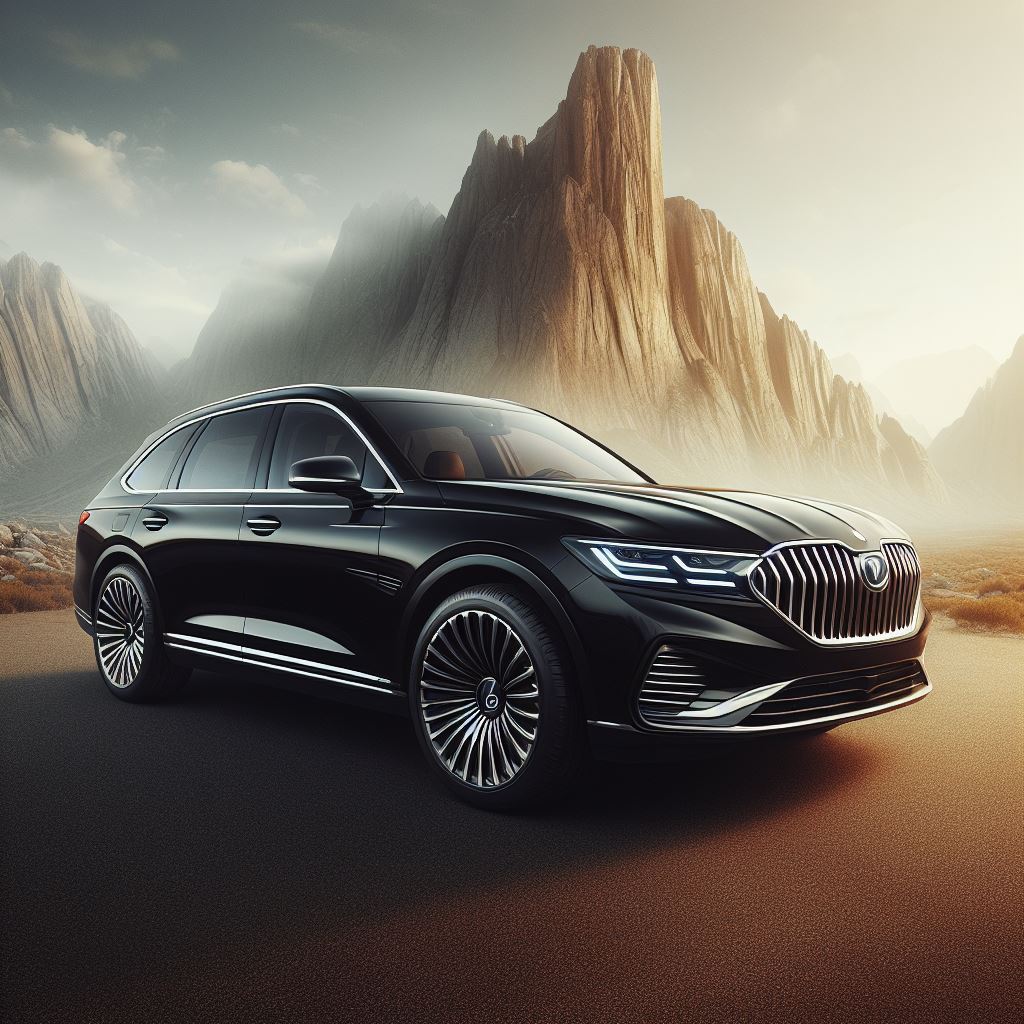The Evolution and Opportunities of MLCCs in the Automotive Industry

MLCC, an abbreviation for Multilayer Ceramic Capacitor, represents a pivotal electronic component extensively utilized within the automotive industry. These capacitors play a crucial role in a variety of vehicle applications, including safety systems, infotainment systems, power supply units, and engine control units. Specifically engineered for automotive use, MLCCs are crafted to endure harsh conditions such as high temperatures, vibrations, and humidity, thus ensuring consistent and reliable performance within vehicles.

The MLCC market within the automotive sector has experienced notable expansion in recent years and is poised to maintain its upward trend throughout the forecast period. This growth can be attributed to the automotive industry’s escalating focus on heightened safety provisions, advanced driver assistance systems, and the proliferation of electric vehicles, all of which contribute to heightened demand for MLCCs. Moreover, the rising prevalence of connected vehicles and the progressive integration of electronic components within automotive systems further propel the demand for MLCCs.
Furthermore, the escalating demand for hybrid and electric vehicles is anticipated to provide a significant impetus to market expansion. These vehicles necessitate a greater quantity of MLCCs for effective power management and energy storage. Additionally, the burgeoning trend of autonomous vehicles and the integration of sophisticated electronics into automotive systems are also pivotal factors augmenting market growth.
The automotive MLCC market is experiencing a transformative shift driven by various trends that are redefining its growth trajectory. One prominent trend is the ongoing miniaturization of MLCCs, enabling higher capacitance within smaller packages. This trend is primarily fueled by the imperative for compact electronic components in vehicles, particularly in the context of electrification and autonomous driving technologies.
Another significant trend is the transition towards higher voltage MLCCs. As automotive systems evolve to become more intricate and demand greater power capacities, the necessity for MLCCs with elevated voltage ratings to meet these demands has emerged. This trend is particularly pertinent in the context of electric and hybrid vehicles, where MLCCs with heightened voltage levels are instrumental in facilitating effective power management and energy storage.
In summary, the MLCC for Automotive Market is projected to exhibit a compound annual growth rate (CAGR) of 14% over the forecast period. This growth is propelled by factors such as the escalating adoption of advanced driver assistance systems, electric vehicles, and connected cars, which are bolstering the demand for MLCCs in the automotive sector. Furthermore, trends like miniaturization and the transition towards higher voltage MLCCs are exerting a significant influence on the market’s growth trajectory. Consequently, the MLCC market for automotive is poised to witness substantial expansion in the forthcoming years.
Major Market Players in the MLCC for Automotive Sector
The market for MLCCs (Multilayer Ceramic Capacitors) in the automotive sector is characterized by intense competition, with several key players holding significant sway over the industry. Among the prominent entities in this market are Murata, Samsung Electro-Mechanics, Taiyo Yuden, Samwha, Kyocera, Walsin, Darfon, TDK, Fenghua, Yageo, Eyang (Tianli), Holy Stone, Three-Circle, and Nippon Chemi-Con.
Murata stands out as a prominent figure in the MLCC market, providing an extensive array of products tailored for diverse industries, including automotive. Established in 1944, the company has emerged as a worldwide leader in electronic components and solutions. Murata’s MLCC offerings are distinguished by their reliability, high capacitance, and compact form factor. The company has witnessed steadfast market expansion, attributable to the rising demand for MLCCs in automotive applications.
Samsung MLCC is popular in automotive manufacturing. Samsung Electro-Mechanics, a subsidiary of the Samsung Group, stands as another notable contender in the MLCC market. Founded in 1973, the company has ascended to a prominent position among the top global MLCC manufacturers. Samsung Electro-Mechanics boasts a diverse portfolio of MLCCs meticulously crafted for automotive applications. The company has experienced substantial market expansion, attributed to its relentless pursuit of technological advancements and a robust customer base. Samsung MLCC is popular in automotive manufacturing.
Taiyo Yuden, established in 1950, is a distinguished Japanese company celebrated for its top-tier MLCC offerings. Specializing in the development and manufacturing of MLCCs and other electronic components, Taiyo Yuden’s products are esteemed for their exceptional performance and reliability. Widely embraced in the automotive sector, Taiyo Yuden’s MLCCs have propelled the company to substantial market growth, underscored by its sterling brand reputation and unwavering commitment to research and development.
These companies, alongside other contenders in the automotive MLCC market, are persistently investing in technological advancements and product innovations to fortify their competitive positions. The global MLCC market for the automotive sector is anticipated to experience consistent growth in the foreseeable future, propelled by the escalating demand for electronic components in automotive applications, including advanced driver-assistance systems (ADAS) and electrical powertrains.
What Opportunities Exist for MLCC Manufacturers in the Automotive Sector?
The MLCC (Multilayer Ceramic Capacitor) market within the automotive industry has witnessed notable expansion and is poised for continued growth. MLCCs find extensive application in vehicles, serving functions in powertrains, safety systems, infotainment, and advanced driver-assistance systems. The increasing adoption of electric vehicles, autonomous vehicles, and connected cars is expected to be a key driver for MLCC demand in the automotive sector. Moreover, the industry’s escalating emphasis on energy efficiency and vehicle electrification is anticipated to further propel market growth.
Furthermore, the integration of cutting-edge technologies such as 5G connectivity and smart sensors in automobiles is set to create fresh opportunities for MLCC manufacturers in the automotive segment. In conclusion, the MLCC market within the automotive industry holds a promising outlook, offering substantial growth prospects for manufacturers.
Market Segmentation
The MLCC for Automotive Market Analysis by types is segmented into:
Low Capacitance
High Capacitance
MLCC, or Multilayer Ceramic Capacitor, finds extensive use in the automotive industry. In the low capacitance market segment, MLCCs with small capacitance values are employed. These capacitors offer exceptional stability and reliability, rendering them suitable for critical applications like engine control units and transmission systems. Conversely, the high capacitance market segment necessitates MLCCs with larger capacitance values. These capacitors are utilized to fulfill power supply filtering requirements in automotive electronics, including infotainment systems and electric drivetrains. Both low and high capacitance MLCCs play pivotal roles in enhancing the performance and functionality of automotive systems.
Industry Research by Application
The MLCC for Automotive Market segmentation by Application includes:
Fuel Vehicle
New Energy Vehicle
MLCCs (Multilayer Ceramic Capacitors) are extensively utilized in the automotive sector for both fuel vehicles and new energy vehicles. In fuel vehicles, MLCCs play a critical role in engine control units, transmission systems, and infotainment systems, ensuring dependable performance. For new energy vehicles, MLCCs are indispensable for battery management systems, electric motors, and on-board charging systems. Their combination of high capacitance, compact size, and exceptional electrical properties makes MLCCs well-suited for these applications, thereby contributing to the efficient operation and enhanced performance of vehicles in the automotive market.
Regionally, the MLCC for Automotive Market Players are distributed as follows:
North America: United States, Canada
Europe: Germany, France, U.K., Italy, Russia
Asia-Pacific: China, Japan, South Korea, India, Australia, China Taiwan, Indonesia, Thailand, Malaysia
Latin America: Mexico, Brazil, Argentina, Korea, Colombia
Middle East & Africa: Turkey, Saudi Arabia, UAE, Korea
The market for MLCCs (Multilayer Ceramic Capacitors) in automotive applications is experiencing substantial growth across diverse regions. Key regions such as North America, Asia Pacific, Europe, the United States, and China are witnessing a surge in demand. With their well-established automotive industries and increasing adoption of advanced technologies, Asia Pacific and North America are expected to dominate the market. Specifically, in terms of valuation, APAC, led by China, is anticipated to capture the largest market share, accounting for an estimated percent share of 32%, closely followed by North America.
